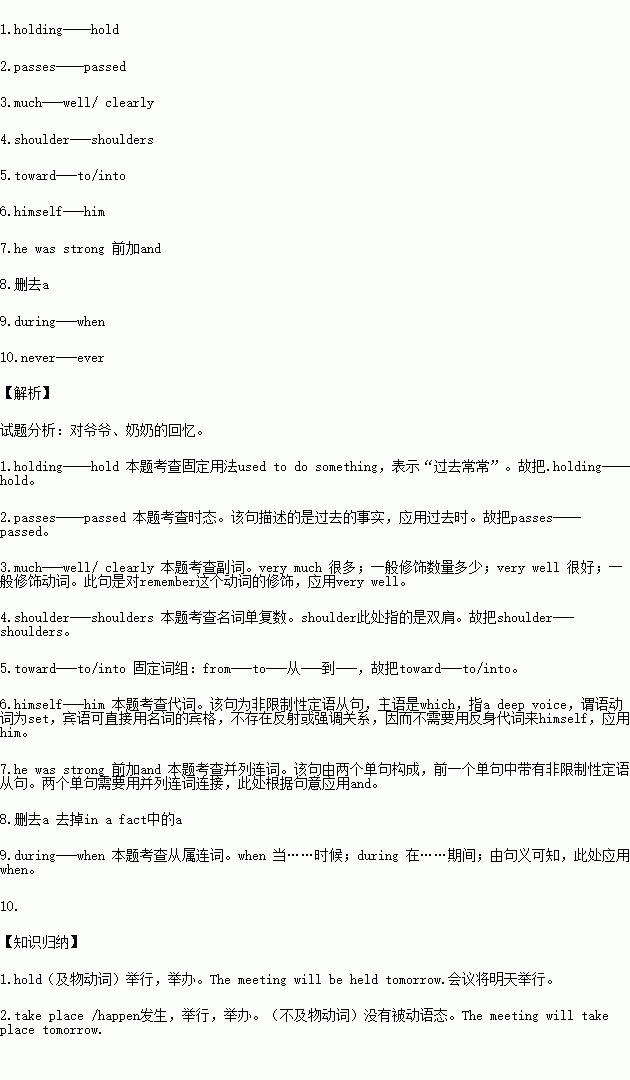题目内容
短文改错文中共有10处语言错误,每句中最多有两处。每处错误仅涉及一个单词的增加、删除或修改。
增加:在缺词处加一个漏字符号(∧),并在其下面写出该加的词。
删除:把多余的词用斜线(\)划掉。
修改:在错的词下划一横线,并在该词下面写出修改后的词。
注意: 1.每处错误及其修改均仅限一词;
2.只允许修改l0处,多者(从第11处起)不计分。
I hardly remember my grandmother. She used to holding me on her knees and sing old songs. I was only four when she passes away. She is just a distant memory for me now. I remember my grandfather very much. He was tall, with broad shoulder and a beard that turned from black toward gray over the years. He had a deep voice, which set himself apart from others in our small town, he was strong and powerful. In a fact,he even scared my classmates away during they came over to play or do homework with me. However, he was the gentlest man I have never known.
书面表达
假设你校学生会定于4月10日组织一次高三学生的登山活动,请根据下面表格内容, 以学生会的名义用英语写一则通知,欢迎同学们积极参加。
目的 | 锻炼身体,放松心情 |
地点 | 关山 |
内容与要求 | 1. 早上7:20在校门口乘公交车出发,下午7:00返回; 2. 上午登山,中午在山顶野餐,下午分组自由活动; 3. 拍照、记录,之后参加校摄影展或征文比赛。 |
温馨提示 | 1. 自带午餐和饮用水; 2. 4月5日前到学生会报名。 |
注意:
1. 词数100左右。
2. 可适当增加细节,以使行文连贯。
3. 通知的格式已为你写好,不计入总词数。
参考词汇:关山Mount Guan; 报名sign up; 征文比赛essay contest
Notice
__________________________________________________________________________________________
__________________________________________________________________________________________
__________________________________________________________________________________________
__________________________________________________________________________________________
__________________________________________________________________________________________
__________________________________________________________________________________________
Student Union

